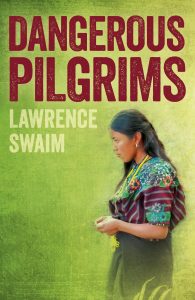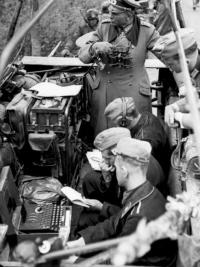
by Lawrence Swaim
Extract:
So I began to write the occasional Guatemala story.
The bureau chief was a fallen Mormon who was extraordinarily sensitive to any story that questioned or focused on American support of the dictatorships then flourishing in Latin America. These kinds of stories he labeled “advocacy journalism;” as far as I could tell, that meant any kind of reportage that raised questions about American foreign policy in Latin America.
Once a wire service got a reputation for “advocacy journalism,” he told me, daily journalism in America would drop it like a hot potato. Responsible North American news agencies did not go out of their way to do that kind of investigative reporting, not when the subject being investigated was American foreign policy in the Third World. Latin American governments supported by the US might indeed engage in torture, murder, imprisonment of dissenters, and systematic sexual abuse of females; but it engaged in them only as useful adjuncts to the winning of the Cold War.
Not only did my boss dislike stories about North American influence in Latin American politics, this same bureau chief did not like stories about Latin American politics at all. What he did like were stories about futbol, which he featured early and often in his dispatches—the more violent the story, the better. The assorted drunks, journalists and maniacs who assisted him referred to him as the “soccer editor.”
He did not seem to mind.
I wrote a tongue-in-cheek and somewhat scurrilous piece about a North American seeing his first soccer game at the National Stadium in Guatemala City (during which the Guatemalans in the stands chased the referee out of the stadium and tried unsuccessfully to set his car on fire). I wrote the National Stadium story entirely from material given to me by two stringers, and from a couple of phone interviews with people who had seen the melee. During this time I also wrote a series of cultural pieces about the arts and crafts of various Guatemalan Indian groups in the highlands, and a very nice piece about a couple whose child was flown to a hospital in Miami for emergency surgery.
In all fairness to my bureau chief, the other Americans who worked with him did not find his dislike of “advocacy journalism” all that objectionable. Following the money and looking for scandal was all very good back home in the States; after all, it got Pulitzers for Woodward and Bernstein, not to mention contracts from major Hollywood movie studios. But this was Latin America, and it was a different game—there were national security considerations here.
And it was dangerous. Journalists were getting killed.
Better to keep your peace, said the old-timers. Drink the cheap beer and get yourself a good-looking girlfriend; save the incendiary stuff for the book you would write someday.
And so I saved it, “the incendiary stuff.”
But—lo!—the incendiary stuff took on a life of its own. It took up residence in my body; and in the years to come, it gave me, with its murderously smoldering fires, stomach ulcers, asthma, and a perennially sour disposition; and became, like all things born and nurtured of bad faith, the stuff of truculent, nagging, restless dreams.
 Dangerous
Pilgrims by Lawrence Swaim
Dangerous
Pilgrims by Lawrence Swaim
Maitland Sutterfield is a San Francisco journalist who has just been through an exhausting divorce. He takes a writer's holiday, accepting an assignment as a reporter in Guatemala. In full flight
from his personal demons, Sutterfield seeks peace in a beautiful land unlike his own - but this is Guatemala of the 1980s, and there is a brutal civil war underway. Instead of peace, Sutterfield
finds the perils of love in a time of revolution, not to mention the moral quandaries of a country that is descending into madness.
Maitland's main contact in Guatemala is Sofia Mendez, who takes him to a small Catholic mission in the highlands run by a Spanish-trained Jesuit priest. Maitland volunteers at the mission, convinced
that the priest's ministry is a vivid example of the Liberation Theology movement about which he hopes to write the definitive book-length analysis. But complications abound when Sofia becomes
Maitland's lover, before either he or Sofia have a chance to discuss the real nature of her previous vocation.
Maitland is oppressively aware of the subtle but inevitable exploitation of third-world sources by first-world media, but the tables are turned as he finds himself trapped in a dangerous dilemma in
which Sofia's needs dictate both their futures.
Buy this Paperback: AMAZON US | AMAZON UK | HIVE | INDIEBOUND
Buy this e-book at these online retailers: AMAZON US | AMAZON UK | HIVE | INDIEBOUND
Categories:
0 comments on this article







